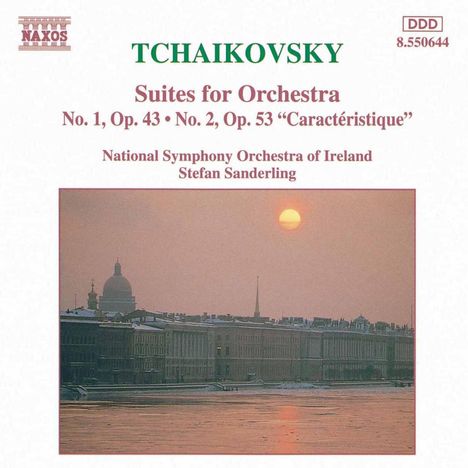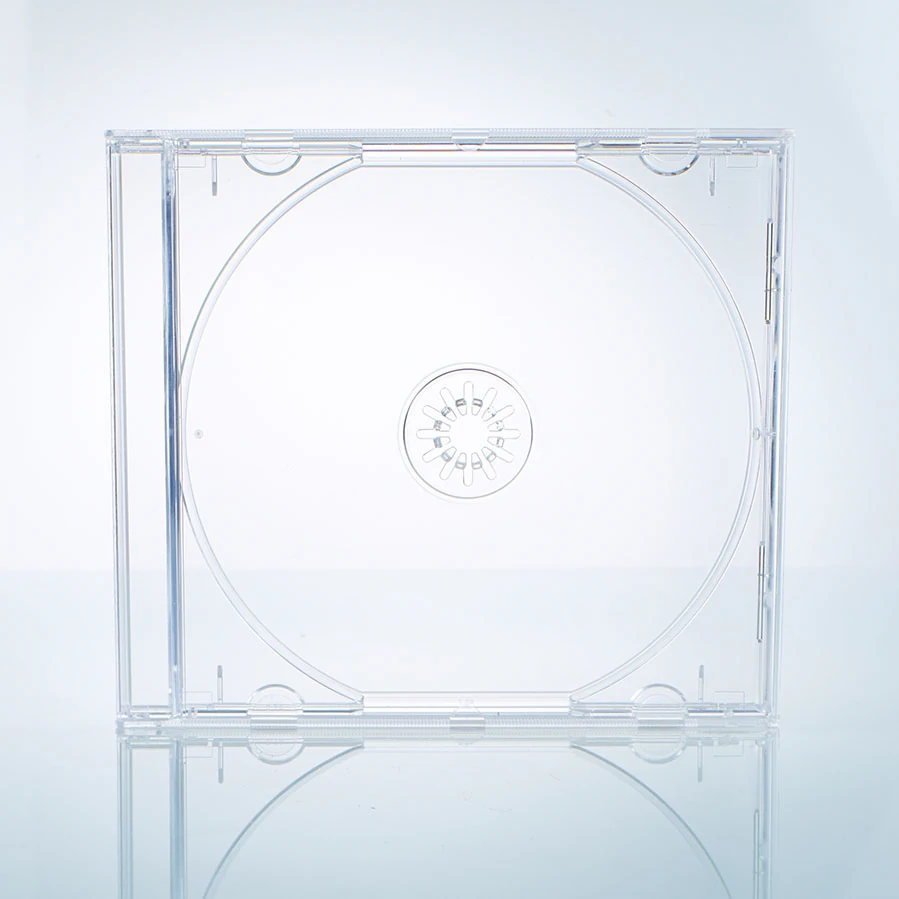Peter Iljitsch Tschaikowsky: Suiten Nr.1 & 2 auf CD
Suiten Nr.1 & 2
Herkömmliche CD, die mit allen CD-Playern und Computerlaufwerken, aber auch mit den meisten SACD- oder Multiplayern abspielbar ist.
(soweit verfügbar beim Lieferanten)
- Künstler:
- Ireland National Symphony Orchestra, Stefan Sanderling
- Label:
- Naxos
- Aufnahmejahr ca.:
- 1992/1993
- Artikelnummer:
- 6941648
- UPC/EAN:
- 4891030506442
- Erscheinungstermin:
- 22.11.1993
In dem gesamten Werk (Suite Nr. 1) und in der gewählten Form hatte er eine Freiheit genossen, die ihm die Sinfonie nicht zugestand, und er fand sich in der Lage, die Art von Musik zu schreiben, die in seinen Balletten ihren weiteren Ausdruck fand. Ironischerweise war der populärste aller Sätze, sowohl bei seinen ersten Aufführungen in Russland als auch danach, der Marsch, den Tschaikowsky einst zu verwerfen gehofft hatte.
Die Suite Nr. 2 in C-Dur beginnt mit Jeu de sons, einem Andantino, das ein Allegro molto vivace in Sonatenform in einem Satz mit kontrapunktischer Aktivität umrahmt, in dessen Zentrum eine Fuge steht. Der zweite Satz Walzer, eine Komposition von beträchtlichem Einfallsreichtum in ihrer subtilen rhythmischen Vielfalt, wird von einem Scherzo Burlesque gefolgt, das einen optionalen Platz für vier Akkordeons findet. In deutlichem Kontrast dazu steht das Rêves d'enfant, eine beschwörende und vorwiegend sanfte Musik, mit den unvorhersehbaren Elementen eines Traums. Die Suite endet mit einem wilden Tanz von typisch russischer Form, nach dem Vorbild von Dargomizhskys Orchesterfantasie Kazachok, von der Tschaikowsky 1868 eine Klaviertranskription angefertigt hatte. Diese Hommage an den älteren Komponisten übertrifft das Original.
Product Information
In the whole work (Suite No 1) and the chosen form he had enjoyed a freedom that the symphony would not allow, finding himself able to write the kind of music that found further expression in his ballets. Ironically the most popular of all the movements, both at its first performances in Russia and subsequently, has been the March that Tchaikovsky had once hoped to discard.
Suite No. 2 in C major opens with Jeu de sons, an Andantino framing a sonata-form Allegro molto vivace in a movement of some contrapuntal activity, with a fugue at its heart. The second movement Waltz, a composition of considerable ingenuity in its subtle rhythmic variety, is followed by a Scherzo Burlesque that finds an optional place for four accordions. In marked contrast is the Rêves d'enfant, evocative and predominantly gentle music, with the unpredictable elements of a dream. The suite ends with a wild dance of typically Russian form, modelled on Dargomizhsky's orchestral fantasia Kazachok, of which Tchaikovsky had made a piano transcription in 1868. This tribute to the older composer outstrips its original.
Rezensionen
Classic CD 5/94: »Die 1. und 2. Suite werden begeisternd frisch und tadellos vom National Symphony Orchestra unter Stefan Sanderling (dem Sohn von Kurt Sanderling) interpretiert. Diese erstklassige Produktion wird ein weiterer Naxos ›Winner‹ werden.«Disk 1 von 1 (CD)
Suite für Orchester Nr. 1 d-moll op. 43
-
1 1. Introduzione e fuga: Andante sostenuto, moderato e con anima
-
2 2. Divertimento: Allegro moderato
-
3 3. Intermezzo: Andante semplice
-
4 4. Marche miniature: Moderato con moto
-
5 5. Scherzo: Allegro con moto
-
6 6. Gavotte: Allegro
Suite für Orchester Nr. 2 C-Dur op. 53 "Suite caractéristique"
-
7 1. Jeu de sons: Andantino un poco rubato
-
8 2. Valse: Moderato
-
9 3. Scherzo burlesque: Vivace con spirito
-
10 4. Rêves d'enfant: Andante molto sostentuo
-
11 5. Danse baroque: Vivacissimo
Mehr von Peter Iljitsch ...








